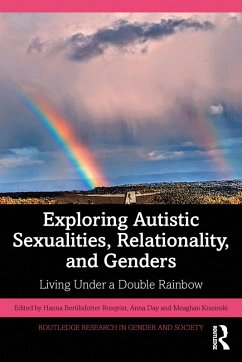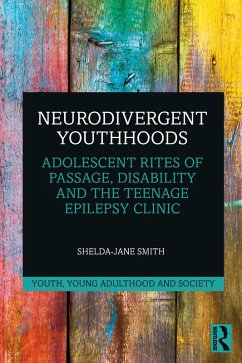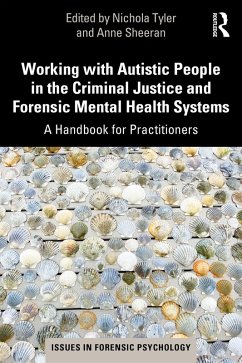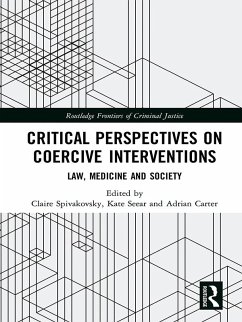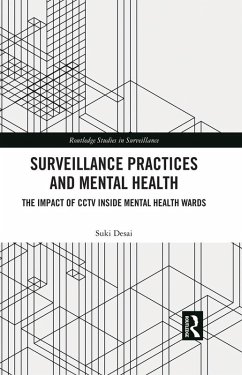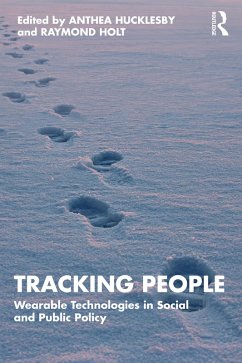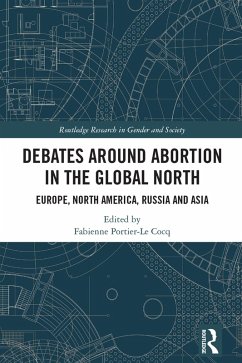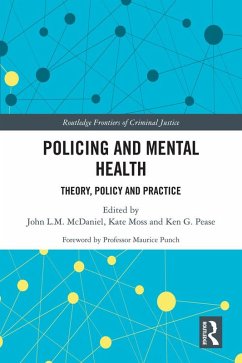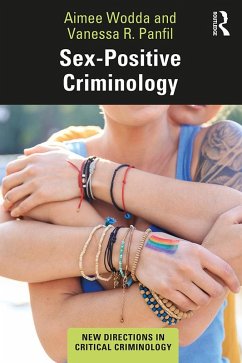
Exploring Autistic Sexualities, Relationality, and Genders (eBook, PDF)
Living Under a Double Rainbow
Redaktion: Bertilsdotter Rosqvist, Hanna; Krazinski, Meaghan; Day, Anna
Versandkostenfrei!
Sofort per Download lieferbar
39,95 €
inkl. MwSt.
Weitere Ausgaben:

PAYBACK Punkte
20 °P sammeln!
This edited collection of contributions explores non-normative genders, sexualities, and relationality among Autistic people.Written within an explicitly neuro-affirmative frame, the collection celebrates the diversity and richness of Autistic identity, sexuality, gender, and relationships, exploring areas such as consent, embodiment, ink, kink, sex education, and therapeutic work. All editors and contributors are neurodivergent and members of the communities that the book focuses on, providing an authentic and unique exploration of gender, sexuality, and relationality in Autistic people by Au...
This edited collection of contributions explores non-normative genders, sexualities, and relationality among Autistic people.
Written within an explicitly neuro-affirmative frame, the collection celebrates the diversity and richness of Autistic identity, sexuality, gender, and relationships, exploring areas such as consent, embodiment, ink, kink, sex education, and therapeutic work. All editors and contributors are neurodivergent and members of the communities that the book focuses on, providing an authentic and unique exploration of gender, sexuality, and relationality in Autistic people by Autistic/other neurodivergent authors.
The book is primarily intended for postgraduate students and academics across disciplines including sociology, social work, psychology, disability studies, inclusive and special education, and sexual education. Mental health professionals and educators will also find it a useful resource to support their Autistic clients as well as developing their own understanding about how to support Autistic people in a neurodiversity-affirming, kink-affirming, LGBTQ+, and gender-variant way.
Written within an explicitly neuro-affirmative frame, the collection celebrates the diversity and richness of Autistic identity, sexuality, gender, and relationships, exploring areas such as consent, embodiment, ink, kink, sex education, and therapeutic work. All editors and contributors are neurodivergent and members of the communities that the book focuses on, providing an authentic and unique exploration of gender, sexuality, and relationality in Autistic people by Autistic/other neurodivergent authors.
The book is primarily intended for postgraduate students and academics across disciplines including sociology, social work, psychology, disability studies, inclusive and special education, and sexual education. Mental health professionals and educators will also find it a useful resource to support their Autistic clients as well as developing their own understanding about how to support Autistic people in a neurodiversity-affirming, kink-affirming, LGBTQ+, and gender-variant way.
Dieser Download kann aus rechtlichen Gründen nur mit Rechnungsadresse in A, B, BG, CY, CZ, D, DK, EW, E, FIN, F, GR, HR, H, IRL, I, LT, L, LR, M, NL, PL, P, R, S, SLO, SK ausgeliefert werden.




